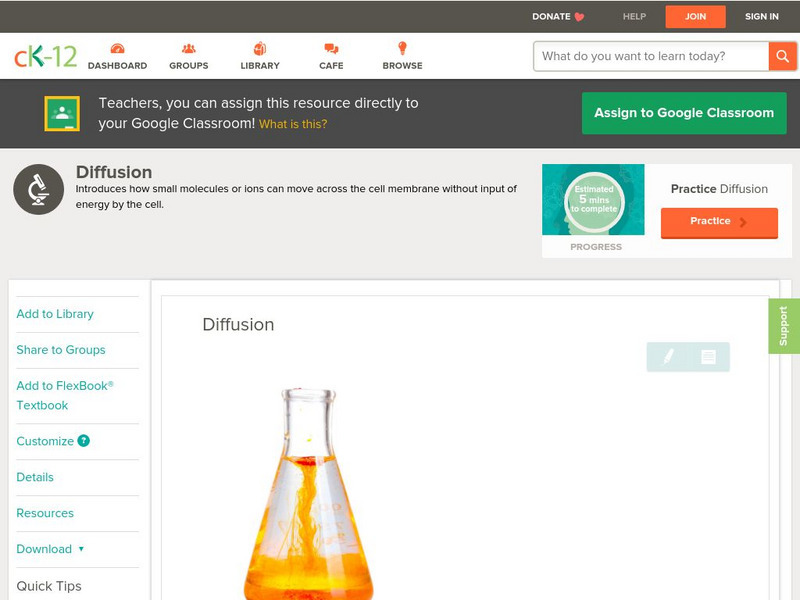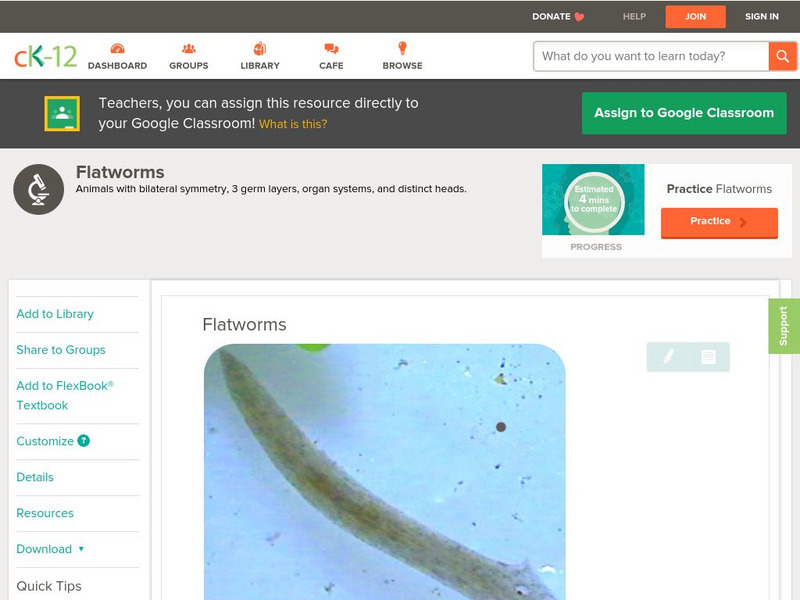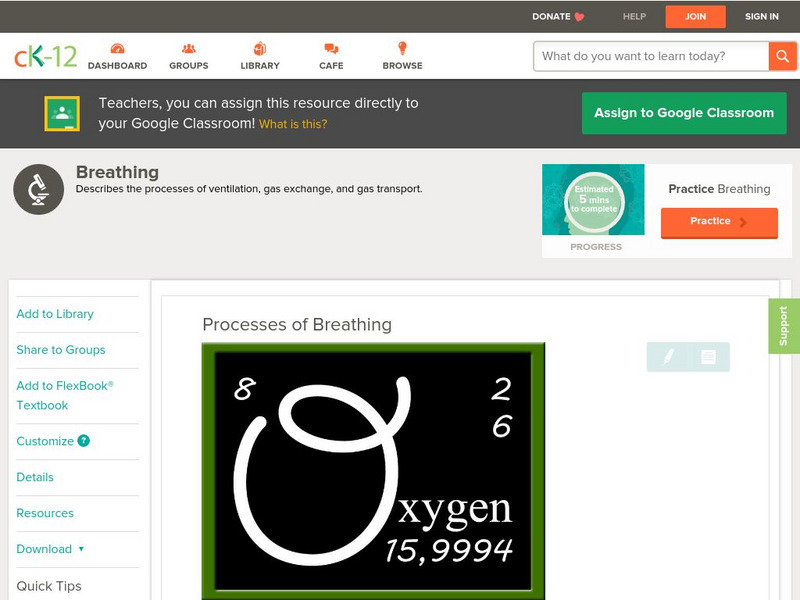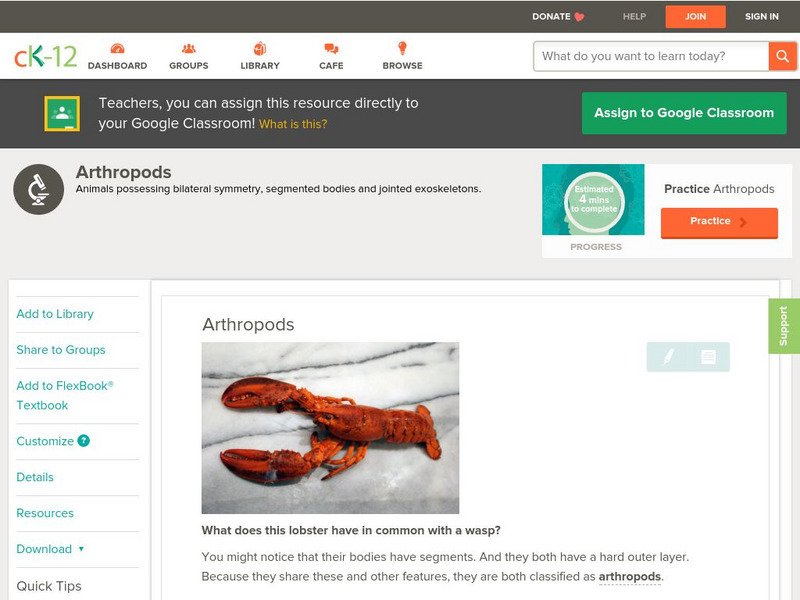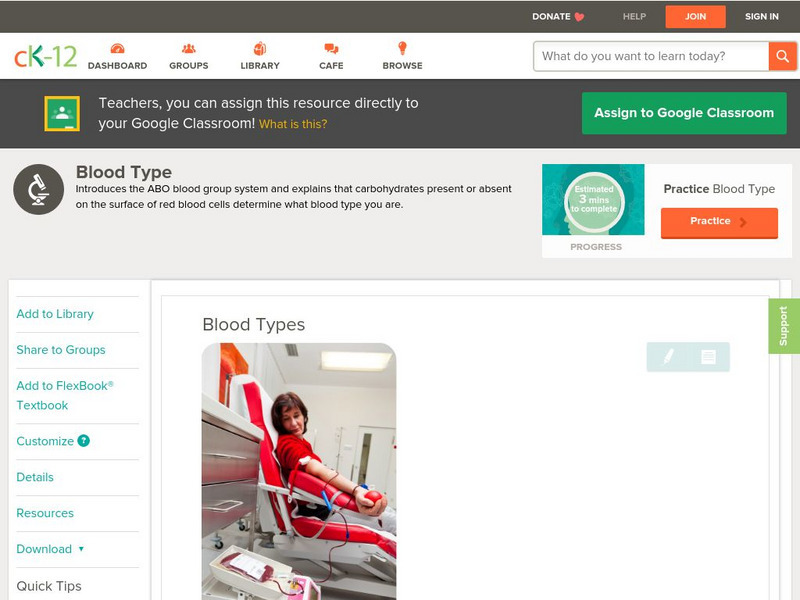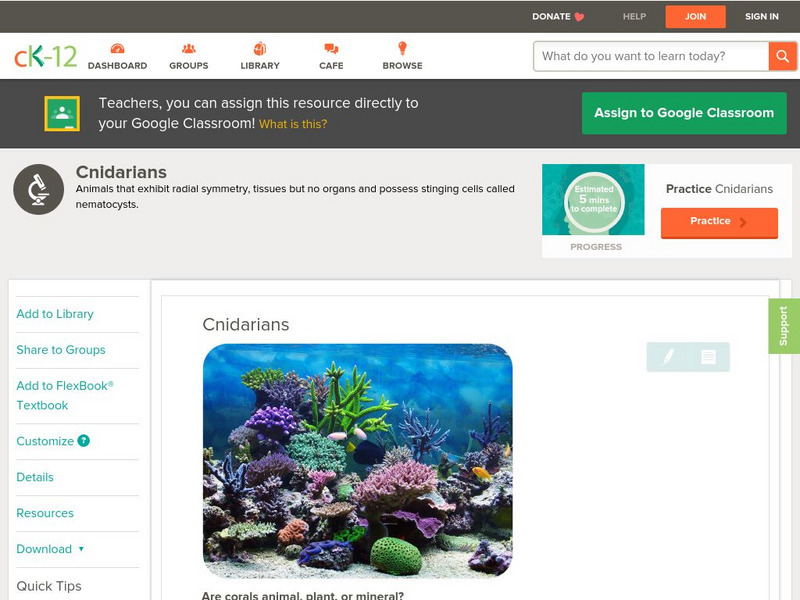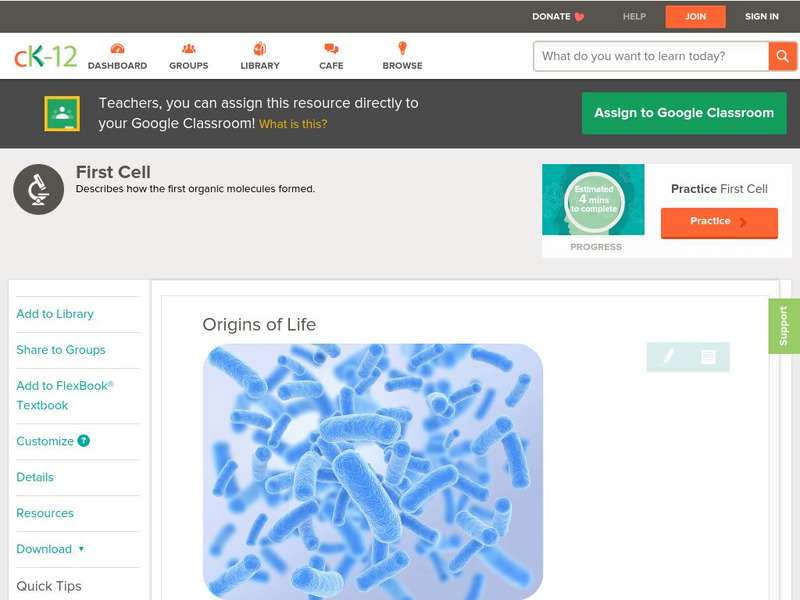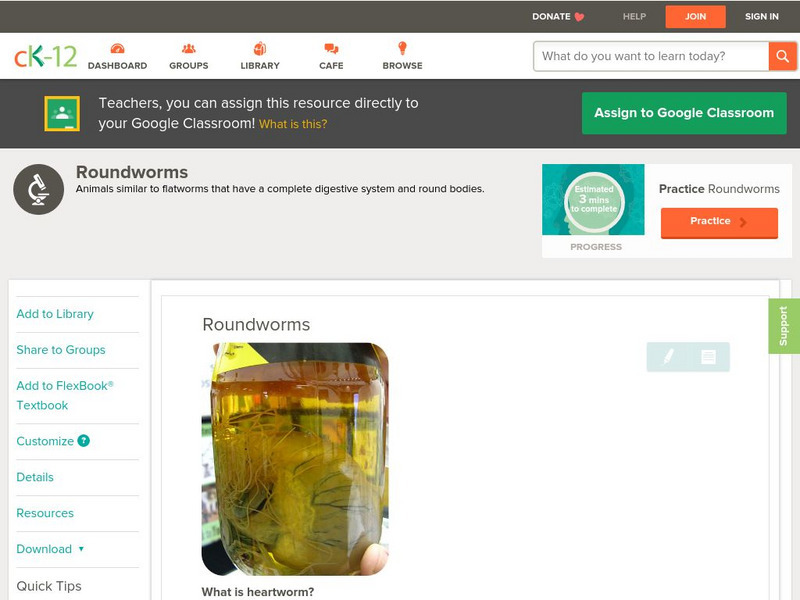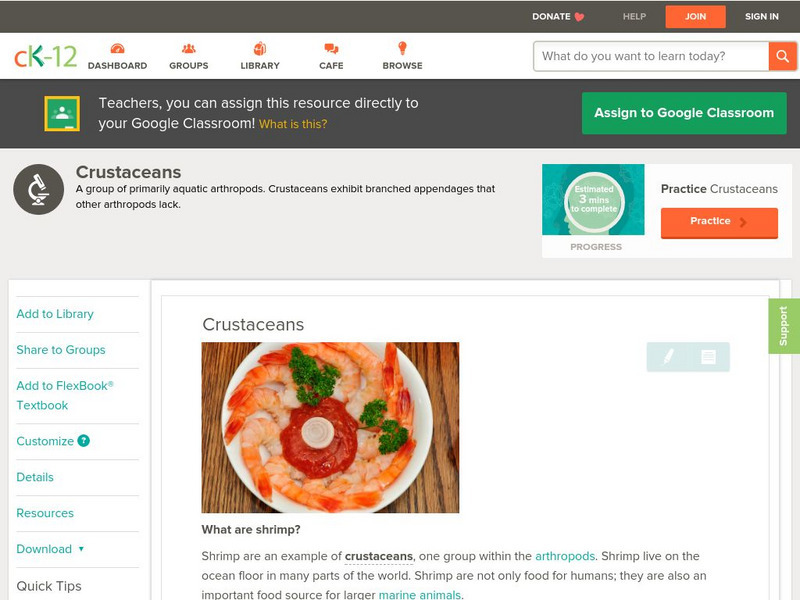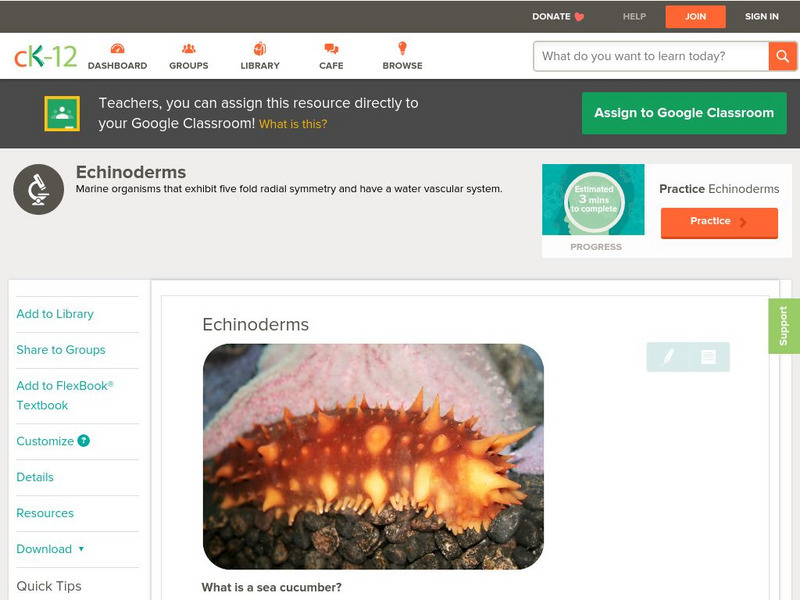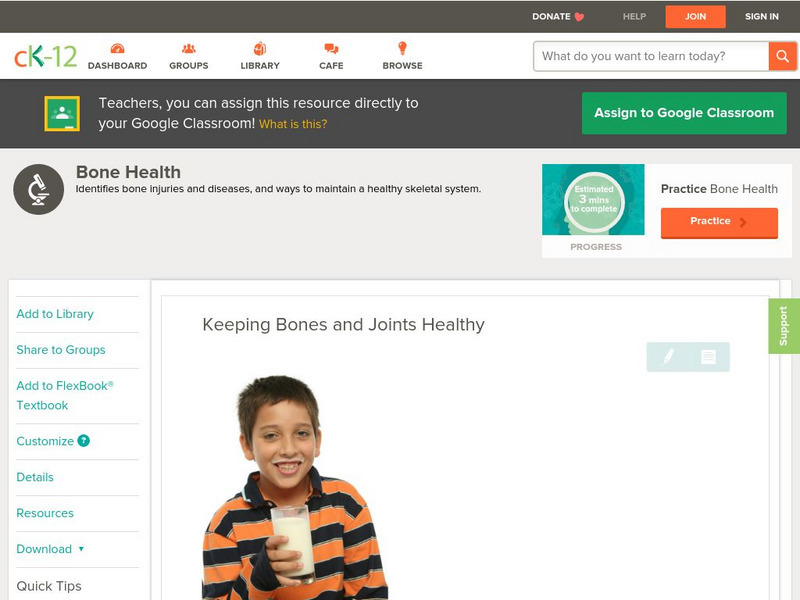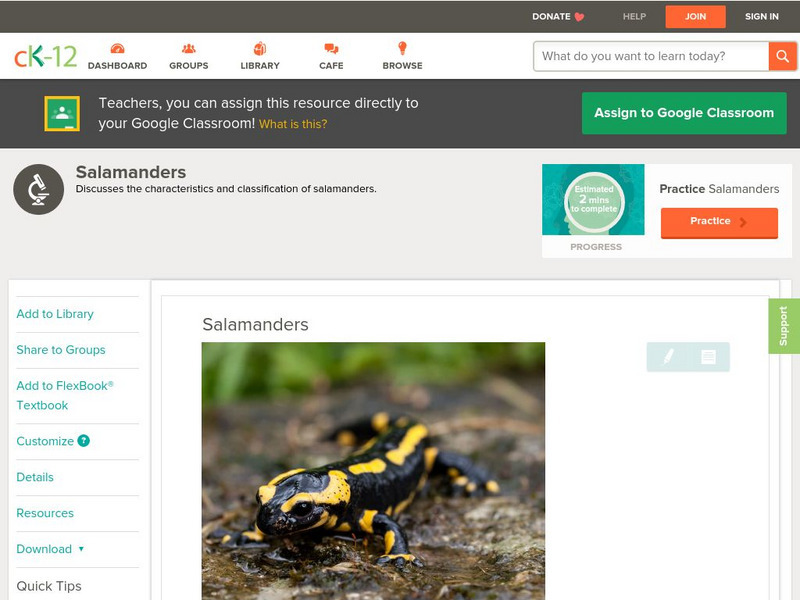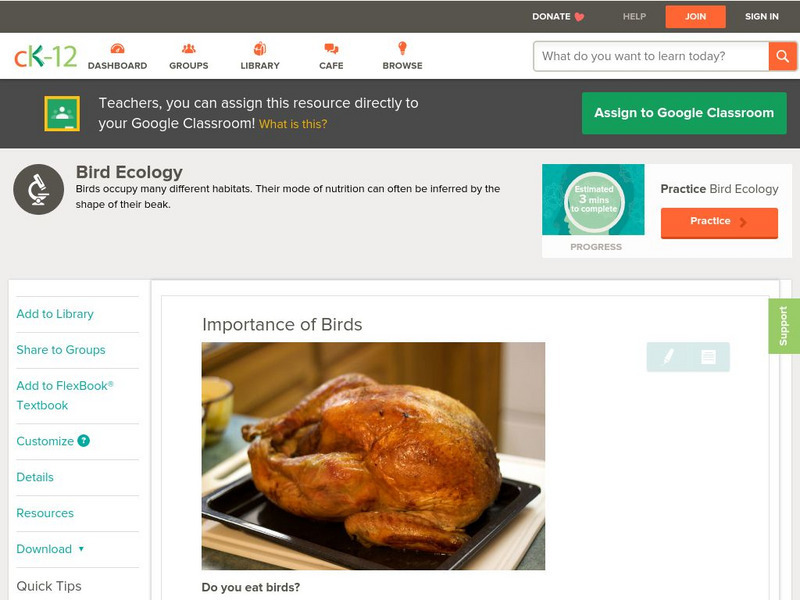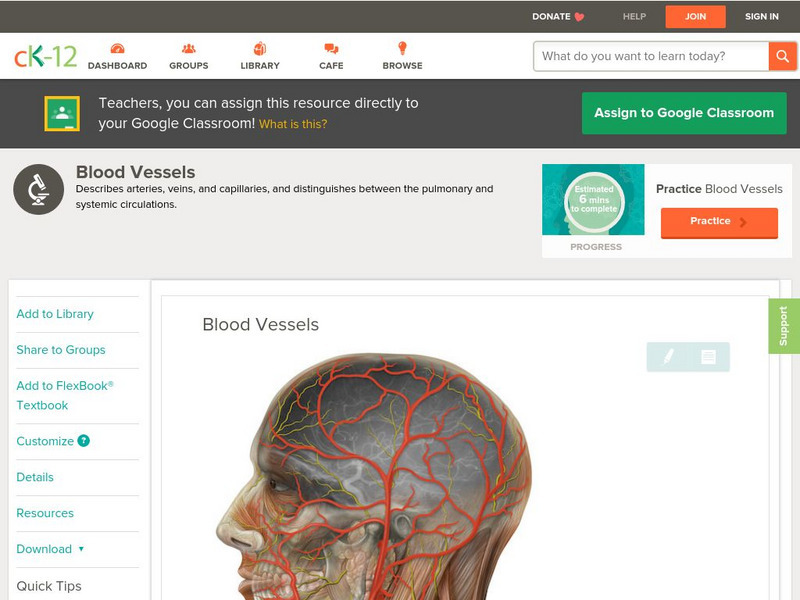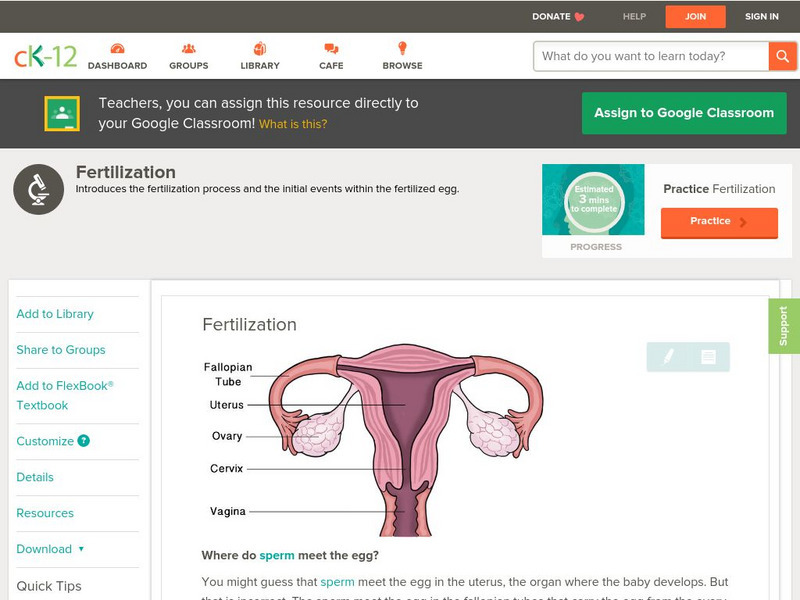Hi, what do you want to do?
CK-12 Foundation
Ck 12: Life Science: Chordates
[Free Registration/Login may be required to access all resource tools.] Did you know that fish, amphibians, reptiles, birds, and mammals are all related? They are all chordates. Chordates are a group of animals that includes vertebrates,...
CK-12 Foundation
Ck 12: Life Science: Diffusion
[Free Registration/Login may be required to access all resource tools.] The process of molecules moving from an area where there are lots of molecules to an area where there are fewer molecules is known as diffusion. The diffusion of...
CK-12 Foundation
Ck 12: Life Science: Flatworms
[Free Registration/Login may be required to access all resource tools.] The word "worm" is not very scientific. But it is a word that informally describes animals (usually invertebrates) that have long bodies with no arms or legs. Worms...
CK-12 Foundation
Ck 12: Life Science: Processes of Breathing
[Free Registration/Login may be required to access all resource tools.] Breathing is only part of the process of bringing oxygen to where it is needed in the body. After oxygen enters the lungs, what happens? Learn more about processes...
CK-12 Foundation
Ck 12: Life Science: Alligators and Crocodiles
[Free Registration/Login may be required to access all resource tools.] Crocodilia, containing both alligators and crocodiles, is an order of large reptiles. Reptiles belonging to Crocodilia are the closest living relatives of birds....
CK-12 Foundation
Ck 12: Life Science: Angiosperms
[Free Registration/Login may be required to access all resource tools.] Angiosperms, in the phylum Anthophyta, are the most successful phylum of plants. Angiosperms evolved the structure of the flower, so they are also called the...
CK-12 Foundation
Ck 12: Life Science: Arthropods
[Free Registration/Login may be required to access all resource tools.] How often do you think you see an arthropod? With over a million described species in the phylum containing arthropods, chances are you encounter one of these...
CK-12 Foundation
Ck 12: Life Science: Blood Types
[Free Registration/Login may be required to access all resource tools.] Do you know what your blood type is? Maybe you have heard people say that they have Type A or Type O blood. Blood type is a way to describe the type of antigens, or...
CK-12 Foundation
Ck 12: Life Science: Cnidarians
[Free Registration/Login may be required to access all resource tools.] Cnidarians, in the phylum Cnidaria, include organisms such as the jellyfish and sea anemones. These animals are found in shallow ocean water. Learn more about...
CK-12 Foundation
Ck 12: Life Science: Organelles
[Free Registration/Login may be required to access all resource tools.] All organelles are found in eukaryotic cells, while most are not found in prokaryotic cells. Learn more about organelles in this learning module produced by CK-12.
CK-12 Foundation
Ck 12: Life Science: Origins of Life
[Free Registration/Login may be required to access all resource tools.] There is good evidence that life has probably existed on Earth for most of Earth's history. Fossils of blue-green algae found in Australia are the oldest fossils of...
CK-12 Foundation
Ck 12: Life Science: Roundworms
[Free Registration/Login may be required to access all resource tools.] The word "worm" is not very scientific. This informal term describes animals that have long bodies with no arms or legs. Worms with round, non-segmented bodies are...
CK-12 Foundation
Ck 12: Life Science: Crustaceans
[Free Registration/Login may be required to access all resource tools.] Crustaceans are a large group of arthropods, consisting of almost 52,000 species. The majority of crustaceans are aquatic. A few groups have adapted to living on...
CK-12 Foundation
Ck 12: Life Science: Echinoderms
[Free Registration/Login may be required to access all resource tools.] You're probably familiar with starfish and sand dollars. They are both echinoderms. Sea urchins and sea cucumbers are also echinoderms. What's similar between these...
CK-12 Foundation
Ck 12: Life Science: Gymnosperms
[Free Registration/Login may be required to access all resource tools.] Gymnosperms have seeds, but they do not produce fruit. Instead, the seeds of gymnosperms are usually found in cones. Learn more about gymnosperms in this learning...
CK-12 Foundation
Ck 12: Life Science: Homeostasis
[Free Registration/Login may be required to access all resource tools.] When you walk outside on a cool day, does your body temperature drop? No, your body temperature stays stable at around 98.6 degrees Fahrenheit. Even when the...
CK-12 Foundation
Ck 12: Life Science: Insect Food
[Free Registration/Login may be required to access all resource tools.] Insects have different types of appendages adapted for capturing and feeding on prey. They also have special senses that help them detect prey. Furthermore, insects...
CK-12 Foundation
Ck 12: Life Science: Keeping Bones and Joints Healthy
[Free Registration/Login may be required to access all resource tools.] You can help keep your bones and skeletal system healthy by eating well and getting enough exercise. Weight-bearing exercises help keep bones strong. Learn more...
CK-12 Foundation
Ck 12: Life Science: Keeping Skin Healthy
[Free Registration/Login may be required to access all resource tools.] Your skin is your largest organ and constantly protects you from infections, so keeping your skin healthy is a good idea. Learn more about keeping skin healthy in...
CK-12 Foundation
Ck 12: Life Science: Salamanders
[Free Registration/Login may be required to access all resource tools.] Salamanders are characterized by slender bodies, short legs, and long tails. They are most closely related to the caecilians, little-known legless amphibians. Learn...
CK-12 Foundation
Ck 12: Life Science: Fermentation
[Free Registration/Login may be required to access all resource tools.] Sometimes cells need to obtain energy from sugar, but there is no oxygen present to complete cellular respiration. In this situation, cellular respiration can be...
CK-12 Foundation
Ck 12: Life Science: Importance of Birds
[Free Registration/Login may be required to access all resource tools.] You are probably familiar with birds as food. Around the world, people consume chicken, turkey, and even more exotic birds, like ostriches. Can you think of other...
CK-12 Foundation
Ck 12: Life Science: Blood Vessels
[Free Registration/Login may be required to access all resource tools.] The blood vessels are an important part of the cardiovascular system. They connect the heart to every cell in the body. Arteries carry blood away from the heart,...
CK-12 Foundation
Ck 12: Life Science: Fertilization
[Free Registration/Login may be required to access all resource tools.] The sperm and egg don't look anything like a human baby. After they come together, they will develop into a human being. How does a single cell become a complex...






